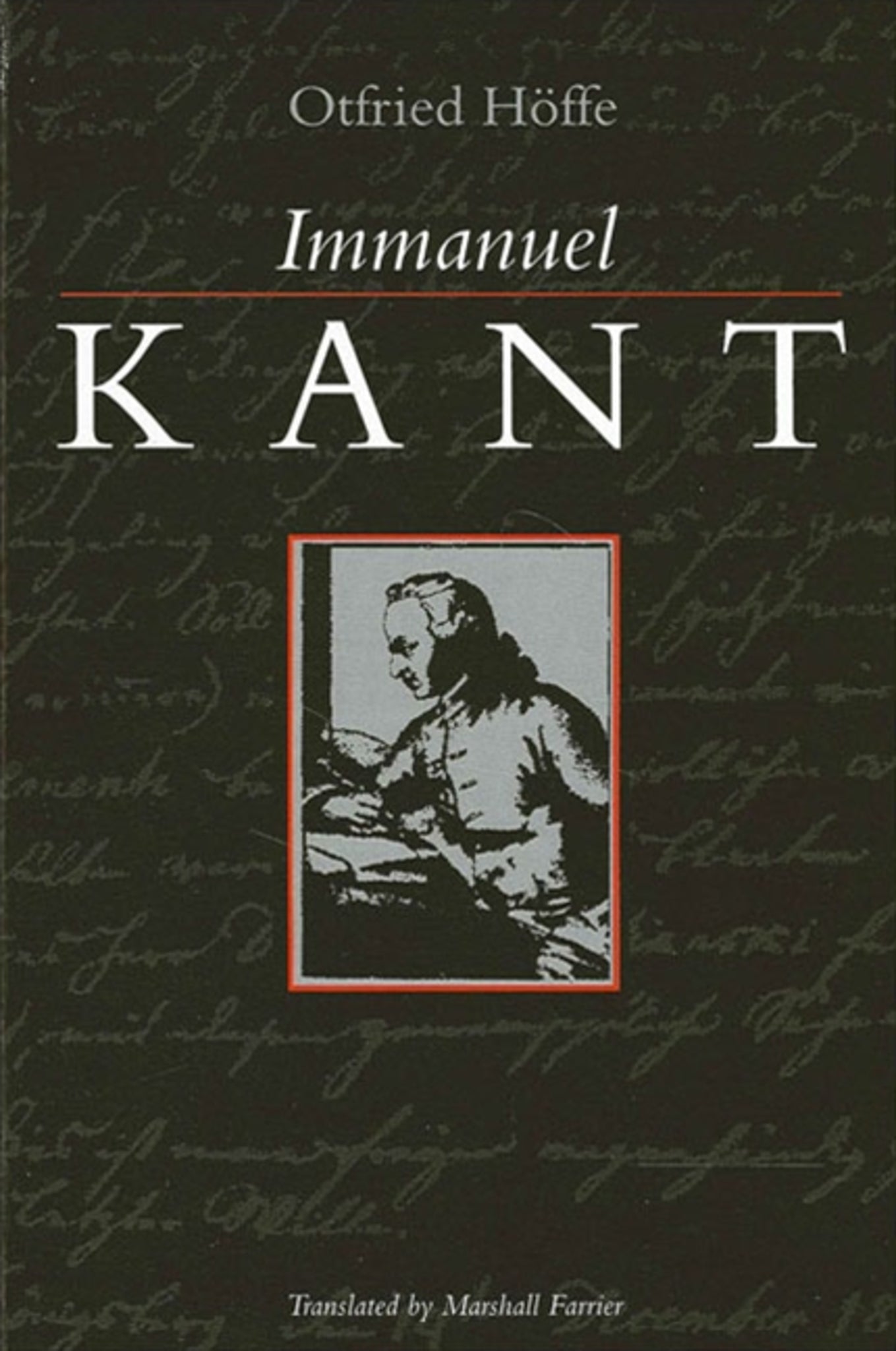We're sorry. An error has occurred
Please cancel or retry.
Immanuel Kant

Some error occured while loading the Quick View. Please close the Quick View and try reloading the page.
Couldn't load pickup availability
- Format:
-
02 September 1994

In this book, Hoffe gives a clear, understandable description of Kant's philosophical development and influence, and he sets forth Kant's main ideas from the Critique of Pure Reason and the ethics to the philosophy of law, history, religion, and art. In his critical treatment, Hoffe shows why Kant's philosophy continues to be relevant and challenging to us today.


"This book is an excellent introduction to Kant, with lots of details that make it of interest and value even to specialists. It is written to answer a real need in the current literature, and it succeeds admirably." — Karl Ameriks, University of Notre Dame
"The book gives a very clear and complete overview of the essential elements of Kant's philosophy, as well as an account of his life and of his effects on future thought." — Thomas Pogge, Columbia University
Translator's Preface
Abbreviations
Introduction
Part I: Life and Philosophical Development
1. The Pre-Critical Period
2. The Critical Transcendental Philosophy
Part II: What Can I Know?—The Critique of Pure Reason
3. The Project of a Transcendental Critique of Reason
4. The Transcendental Aesthetic
5. The Analytic of Concepts
6. The Analytic of Principles
7. The Transcendental Dialectic
Part III: What Ought I Do?—Moral and Legal Philosophy
8. The Critique of Practical Reason
9. Political Philosophy
Part IV: What May I Hope?—The Philosophy of History and Religion
10. History as the Progress of Law
11. The Religion of Practical Reason
Part V: The Philosophical Aesthetics and the Philosophy of the Organic
12. The Critique of Judgment
Part VI: Kant's Influence
13. Reception, Further Development, and Criticism of Kant's Ideas
Notes
Chronology
Bibliography
Indexes



